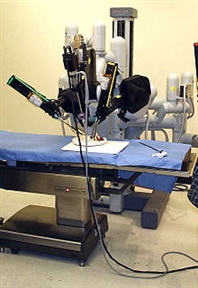|
In this issue
|
10 July 2015
|
|
| |
|
"Even if you don't wake up with an answer, a good night's sleep will equip your brain to assess the problem afresh"
Anon |
|
|
| |
Library staff hours – short term change
|
|
Between Monday 13th July and Friday 25th September 2015 the Library will not be staffed between 5pm-6pm. We apologise for any inconvenience.
Remember all books can be returned via the Library's 4 returns chutes located: outside the John Lindell Lecture Theatre; behind the Royal Talbot reception area; at the entrance of the Centaur Wing at HRH; or inside the library with security access 24/7.
Library staff will be available 8:30am - 5:00 pm Monday - Friday and we look forward to seeing you. |

|
|
|
| |
Outcome of delirium in critically ill patients
|
|
This systematic review and meta-analysis reveals the extent and impact of delirium in ICU patients. Authors used "42 studies, covering 16,595 patients. Delirium was identified in nearly 1/3 of patients (5,280 or 31.8%). These patients had significantly higher risk of mortality during admission ...as well as longer durations of mechanical ventilation and lengths of stay in the intensive care unit and in hospital."
Source: BMJ June 2015: 350 |
|
|
| |
Nonrobotic vs robotic-assisted cardiac surgery
|
|
This study compares mortality, cost, complications and length of stay (LOS) in robotic-assisted and nonrobotic cardiac surgical procedures. The authors found that "robotic-assisted surgeries had higher median cost but lower mortality, lower LOS and lower complication rates."
Source: JAMA surgery 17 June 2015, Online first. |

|
|
|
| |
Sleep disturbance, duration and inflammation
|
|
"Sleep disturbance is associated with inflammatory disease risk and all-cause mortality". This systematic review assesses the global evidence linking sleep disturbance, sleep duration, and inflammation in adult humans.
Source: Biological psychiatry June 2015 (Articles in press)
(Due to a technical issue, this link directs you to the online journal - once open, browse Articles in press using article title for full text) |
|
|
| |
Accuracy of information on medication use – perinatal care
|
|
Pregnancy hand-held records (PHR) are used to promote continuity of care across pregnancy. The aim of this study was to determine the accuracy of the PHR in relation to information on medications and adverse drug reactions (ADRs). A 12-week prospective clinical audit was conducted on 300 women admitted to either the antenatal or postnatal ward at a tertiary-level maternity hospital. The authors found "discrepancies related to medication use and ADRs are common in PHR, with the potential to contribute towards prescribing errors and patient harm."
Source: Australian and New Zealand journal of obstetrics and gynaecology 30 June 2015 - Online first.
|
|
|
| |
Books spotlight
|
|
New books on display
Clinical obstetrics and gynaecology / edited by Brian A. Magowan, Philip Owen, Andrew Thomson. 3rd ed. Saunders Elsevier, 2014.
Doctored : the disillusionment of an American physician / Sandeep Jauhar. Farrar, Straus and Giroux, 2014.
Oncology nursing drug handbook / Gail M. Wilkes, Margaret Barton-Burke. Jones & Bartlett Learning, 2015.
eBook highlights
Atlas of sleep medicine / Sudhansu Chokroverty, Robert J. Thomas . 2nd ed. Elsevier Saunder, 2014.
Effectively diagnose and manage adult and paediatric sleep disorders with help from this online text. Utilise the entirely new image collection and video segment; view sleep observations and other sleep related events.
The developing human : clinically oriented embryology / Keith L. Moore, T.V.N. Persaud, Mark G. Persaud. 10th ed. Elsevier, 2016.
Written by some of the world's experts in the field of anatomy, this e-book edition continues to present medical students with a comprehensive and easily digestible review of this complex topic.
|
|
|
| |
|
|
| |
|
|
| |